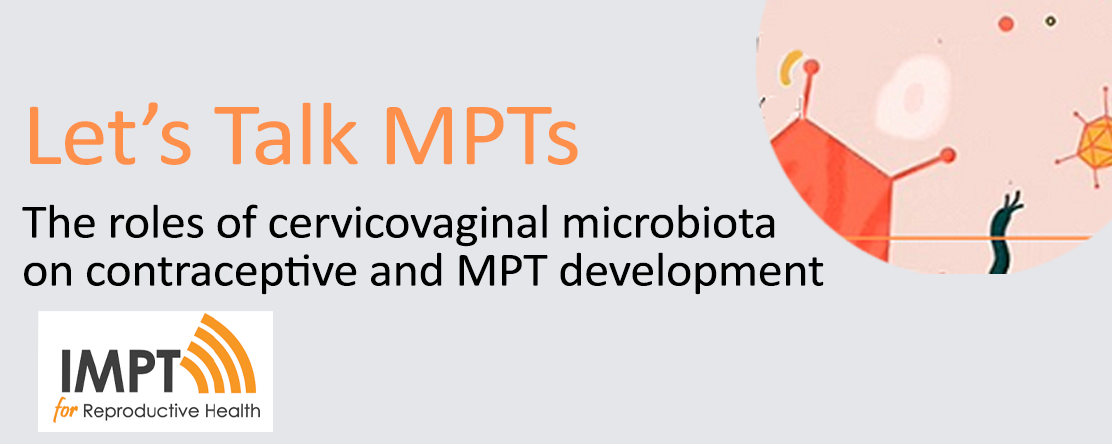
Update
Let’s Talk MPTs | The Role of Cervicovaginal Microbiota on Contraceptive and MPT Development
-
Focus Areas
Women, Youth & Children -
Issues
Reproductive & Sexual Health -
Expertise
Health Education & Promotion -
Programs
CAMI Health

The Initiative for MPTs (IMPT) is hosting the “Let’s Talk MPTs” discussion series to benefit multipurpose prevention technologies (MPT) researchers, stimulate increased interest in the MPT field among newer stakeholders, and ensure successful MPT development and advocacy.
Join PHI’s CAMI Health on December 10, 2020 7:30am PT to chat with leading experts in cervicovaginal microbiota: Jacques Ravel, PhD, MSc (University of Maryland) and Jennifer Deese, PhD, MPH (RTI International) on Vaginal Microbiota & MPTs—Multipurpose prevention technologies (MPTs) are accessible, and acceptable tools for women that combine prevention of at least two sexual and reproductive health (SRH) risks, including HIV, other STIs, and unintended pregnancy.
In this 90-minute webinar you will gain a deeper understanding of the role of cervicovaginal microbiota on health and disease, methods for assessing the vaginal microbiome, and will gain a deeper understanding of the:
- role of cervicovaginal microbiota on health and disease
- methods for assessing the vaginal microbiome
- and more!
More Updates
Work With Us
You change the world. We do the rest. Explore fiscal sponsorship at PHI.
Support Us
Together, we can accelerate our response to public health’s most critical issues.
Find Employment
Begin your career at the Public Health Institute.



